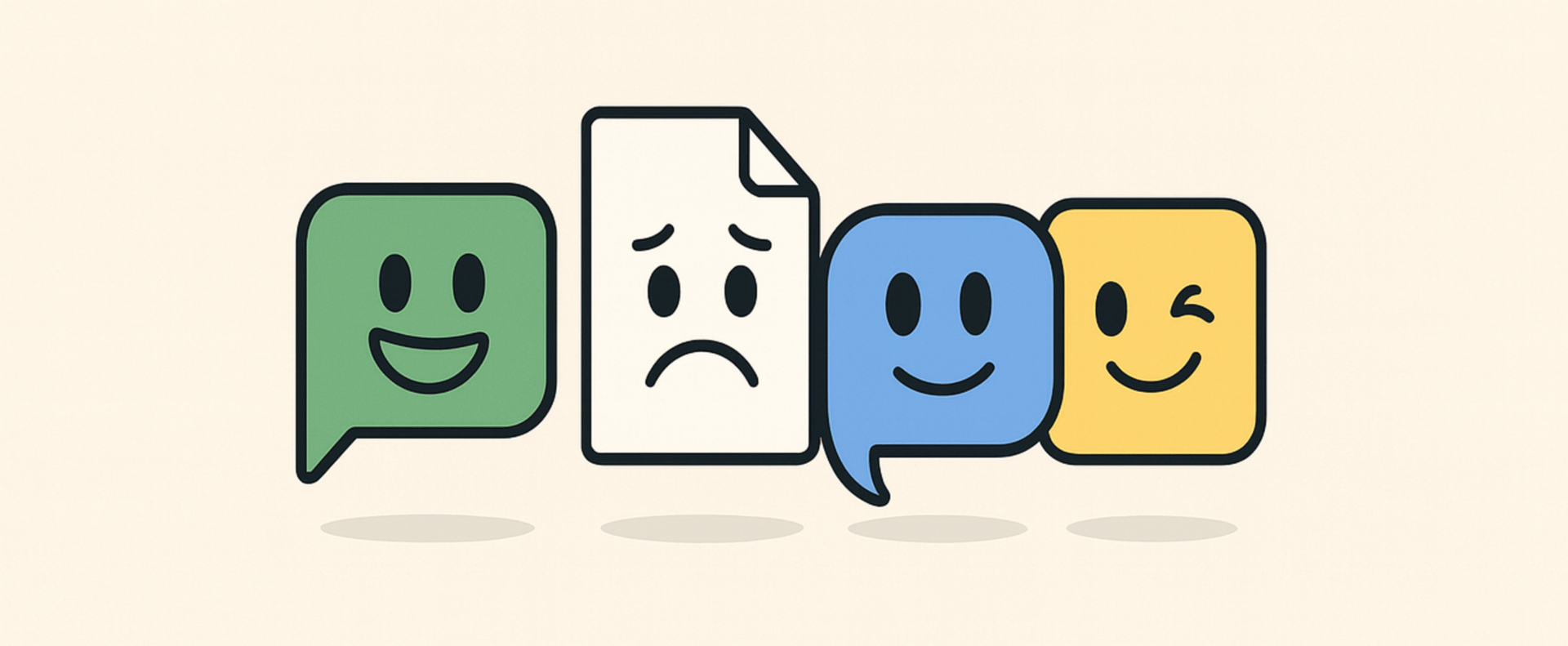The moment you integrate chat into your product, it has a personality.
Depending on its system prompt, your product can now be a suck-up, funny, rude, friendly, unhinged, or even flirtatious.
What about if you turn its temperature down to zero, and tell it never to hallucinate or share anything outside of what the user has shared?
Well, even this lobotomized AI has a personality. Reserved, cautious, and dull are personality traits.
You don’t get to choose whether your product has a personality. Only which one.
And, like any point of leverage, great founders use personality to build trust, delights, and even inspire.
A product’s personality is an extension of its brand: how do you want users to feel when they use it? How do you want them to remember it? What do you want them to tell their friends or colleagues about it?
To answer these questions, you need to find product-personality fit.
Personality as an extension of product
Interaction’s Poke recently launched virally with one of the best-crafted personalities in recent times. The product researched the user, lightly ribbed them, quoted an obscenely expensive monthly price for the product, and then entered into a lengthy negotiation with the user, with a lightly arrogant lowercase tone. The bot was mildly rude, but tastefully and deliciously.
Then somebody leaked the system prompt. It shared every detail and step-by-step instructions on exactly how Poke should behave, and how to replicate the exact personality (including, ironically, not to leak the system prompt).
If a product’s personality was standalone IP, which had value in itself, this would be catastrophic for Poke. But it wasn’t. Nobody cared that the system prompt leaked.
If somebody used the system prompt to develop the same personality for a different product, it would just be derivative. Poke has that personality; it’s now theirs. And it was designed for their onboarding, and their product.
Poke has personality-product fit.
The best products’ personalities are co-evolved with the products themselves. Personality is not a feature to be added-on.
Which personality for which product?
Microsoft Teams couldn’t ship an irreverent AI which banters with the user when they are five minutes late to the weekly call. Chubbies’ AI, on the other hand, as Sierra is trying to help them with, needs to be funny and friendly above all else.
It might seem obvious that consumer products should be fun, irreverent, silly. B2B products, on the other hand should be serious, competent, perhaps boring. But there is much more nuance than that.
Just like the most effective human personalities, great AI personalities adapt.
Cybersecurity AI companies might be defensive and cautious when discussing potential threats, but warm and collaborative when tweaking security settings.
Sales enablement AI might be aggressive and full of pep when prospecting, but polished when summarizing performance for the CRO.
HR AI might be empathetic when helping an employee navigate a sensitive issue, but clear, legalistic, and technical when documenting policy or handling compliance.
For consumer AI companies, personality must be so carefully constructed and attuned to the precise details of the use-case, monetization, retention, and everything else, that it becomes scarcely distinguishable from the product itself. Fitness coach AIs can be encouraging and driven, mental health AI could be calm, measured and relaxed. Meme software can afford to abuse you if you forget your password. But most importantly, their personalities will be unique and memorable.
These principles for product-personality fit will surely evolve; much like Slack distinguished itself from other corporate communications SaaS businesses with confetti and emojis, the floor is open for a new company to take that further with a personality.
Personality as distinct from brand
Brand, as Bezos put it, is “what people say about you when you’re not in the room.”
Brand is about how you perceived. Your reputation. The accumulation of experiences and social signals which determine what people think of your company.
Personality is quite different. Personality is how your product behaves when you are in the room.
So personality is upstream of brand: your personality is how you treat your users, and therefore how they will perceive you.
But it is also downstream: your personality also needs to account for your brand. Misalignment is jarring. If the AI assistant of a “fun” brand replies in legalese, users feel the disconnect instantly.
Finding product-personality fit
The best builders approach product-personality fit like product-market fit: as something to discover through iteration with their teams. They try voices, watching how their users and even employees react. Every conversation allows them to tweak the product slightly more finely.
Personality isn’t determined by marketing, product, comms, or engineering. It’s a direct output of the company’s culture and imprinted on every user action.
Something so simultaneously important and interdisciplinary, necessarily needs to begin and end with the founder. Like a company’s culture, a product’s personality generally mirrors the vision of the leader.
This means product-personality fit can’t be found by a marketing agency; it isn’t a branding exercise. Product-personality fit is non-deterministic and recursive, it is quite literally embedded into the working of the product and can’t simply adhere to a set of “guidelines”.
A beautifully-crafted AI product and its personality are so well-integrated that people will struggle to distinguish between them. It will feel right.
That is when you have found product-personality fit.

